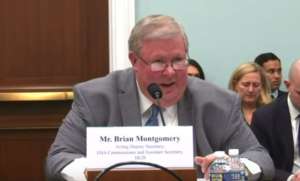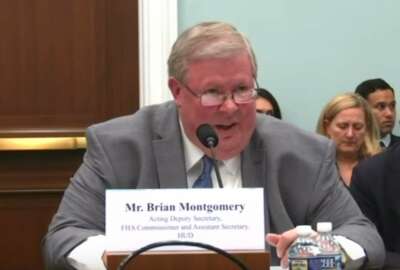

Some 1,150 housing contracts expired during the 35-day government shutdown, but the Department of Housing and Urban Development said the situation could have be...
The longest government shutdown in U.S. history is giving lawmakers a long list of examples that prove the lapse’s detrimental and avoidable impact on agency missions.
For the Department of Housing and Urban Development, the agency’s failure to renew some 1,150 housing contracts during the recent lapse in appropriations proved how detrimental the government shutdown was for the department’s mission-related work. But the shutdown also illustrated just how — even with the best intentions — ill-prepared agencies like HUD and others across government are to respond to sudden funding lapses and budget crises.

Roughly 97 percent of HUD’s workforce were furloughed during the recent government shutdown, according to Brian Montgomery, HUD’s acting deputy secretary and Federal Housing Administration commissioner. He addressed the House Appropriations Subcommittee on Transportation, Housing and Urban Development and Related Agencies on Tuesday afternoon.
The department did recall about 15 employees back to the HUD headquarters and another 50 employees to the field to begin the contract renewal process for agreements that had expired.
Subcommittee Chairman David Price (D-N.C.) sternly criticized HUD for its handling of the contract backlog and argued that the department should have seen the possibility for budget uncertainty coming.
“Well sir, I would say there have been a lot of CRs,” Montgomery said when asked if he had envisioned the possibility of a continuing resolution.
On one hand, the situation was unavoidable, Montgomery said. At least one of HUD’s 2,300 housing contracts expire daily. The renewal process is manageable under normal circumstances, because HUD has employees available to work through the manual process of collecting signatures and authorizing new contracts.
The department was already wading through tricky territory as it operated under a continuing resolution in December before the government shutdown.
“Operating under a CR is extremely difficult,” Irv Dennis, HUD’s new chief financial officer, told the subcommittee. “The money that’s appropriated on the first day of the CR is not available immediately for obligation. We have funds controls that go in place. It’s really a five-step process. There are 83 allotments that find themselves down to 1,000 accounts. For those five processes, there are multiple levels of review and control. It could take up to one-and-a-half-to-three weeks for money to get from CR to obligation.”


Most the contracts that had expired during the government shutdown have been authorized for renewal but are now awaiting final signatures, Montgomery said. To his knowledge, no one was evicted because of HUD’s failure to process a housing contract during the government shutdown.
Republicans on the subcommittee largely said HUD responded to unprecedented circumstances about as well as it could. Both Montgomery and Dennis praised the department’s employees who “moved heaven and earth” without pay to renew previously expired contracts during the government shutdown.
But HUD needs a long term IT modernization strategy with dedicated funding to reach a true fix; no short-term shutdown contingency plan would have addressed the department’s contract management challenges.
“The biggest frustration we have at HUD is the technology,” Dennis said. “I had our team put together a matrix of all the systems and how they interface. It’s old. It’s antiquated. It’s clumsy. It doesn’t interface well. It’s hard to move information from point A to point B. Sometimes that’s a manual process. Sometimes it’s on an Excel spreadsheet. It’s very dated stuff. The number one thing we need is to improve that technology.”
An automated contract management system could also save the agency on employee overtime, Dennis added.
IT modernization isn’t a totally far-fetched concept for HUD. The department already received $20 million from the Technology Modernization Fund Board. The TMF dollars are going toward the department’s financial management system modernization.
But HUD isn’t particularly familiar with the ability and authorities it currently has to set up a working capital fund under the Modernizing Government Technology (MGT) Act.
“I see on your FITARA scorecard that you went from a D in November 2015 to a C+ in December,” said Rep. Will Hurd (R-Texas), who introduced and championed the MGT Act. “You only got a C on MGT, which means you have plans on creating a MGT fund but you haven’t.”
Hurd pointed to another grade on the FITARA scorecard: HUD’s “F” on software licensing, which means the department isn’t aware of the software licenses it currently owns.
“Other agencies have saved billions of dollars on understanding the software licensing, which could then go into the MGT fund, which could then be used as rollover funds to work on TRACS,” he said. “I would be interested in your plans to get control of the software licensing, because they could drive modernization.”
Dennis, along with HUD’s chief information officer and program managers, are managing the modernization of the department’s contract management system.
Copyright © 2024 Federal News Network. All rights reserved. This website is not intended for users located within the European Economic Area.
Nicole Ogrysko is a reporter for Federal News Network focusing on the federal workforce and federal pay and benefits.
Follow @nogryskoWFED
